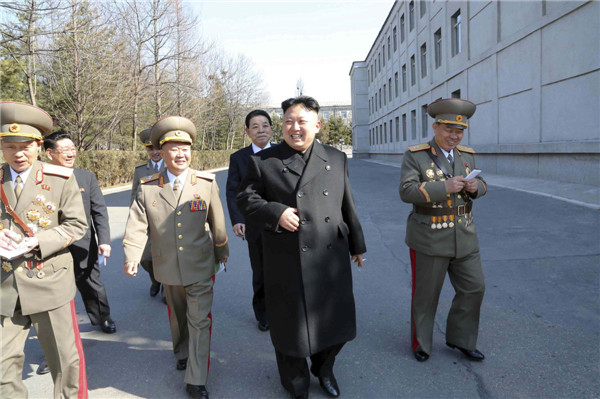 |
|
North Korean leader Kim Jong-un (C) visits the Kim Il Sung University of Politics to take part in the election of a deputy to the Supreme People's Assembly at sub-constituency No. 43 of Constituency No. 105 together with service personnel of the KPA on March 9, 2014 in this photo released by North Korea's Korean Central News Agency (KCNA) in Pyongyang. [Photo/Agencies] |
The leader gained 100 percent approvals following a 100-percent turnout, KCNA quoted the election committee as saying.
Kim registered at the Paektusan Constituency No. 111, though all constituencies throughout the country nominated him as deputy to the Supreme People's Assembly (SPA).
All registered voters, including those overseas, participated in the election, but results in other election districts have not yet been unveiled, the report said.
Kim also cast his ballot Sunday at a polling station in Kim Il Sung University of Politics and voted for Kim Kwang Hyok, commander of the Korean People's Army (KPA) Unit 855, the KCNA said.
Kim made an inspection tour of the university, along with Choe Ryong Hae, member of the Presidium of the Political Bureau of the Central Committee of the Workers' Party of Korea and director of the KPA General Political Bureau, and Kim Yo Jong, younger sister of the top leader, as well as other senior officials.
Parliamentary elections started Sunday to choose members of the top legislature. Eligible voters went to poll stations in different electoral districts to cast their votes for deputies to the 13th SPA, who will serve a five-year term in accordance with the DPRK Constitution.
The SPA is the DPRK's highest legislative body. It has the power to adopt, amend or supplement enactments to the Constitution, determine state policies and budgets, and adjust the country's leadership.